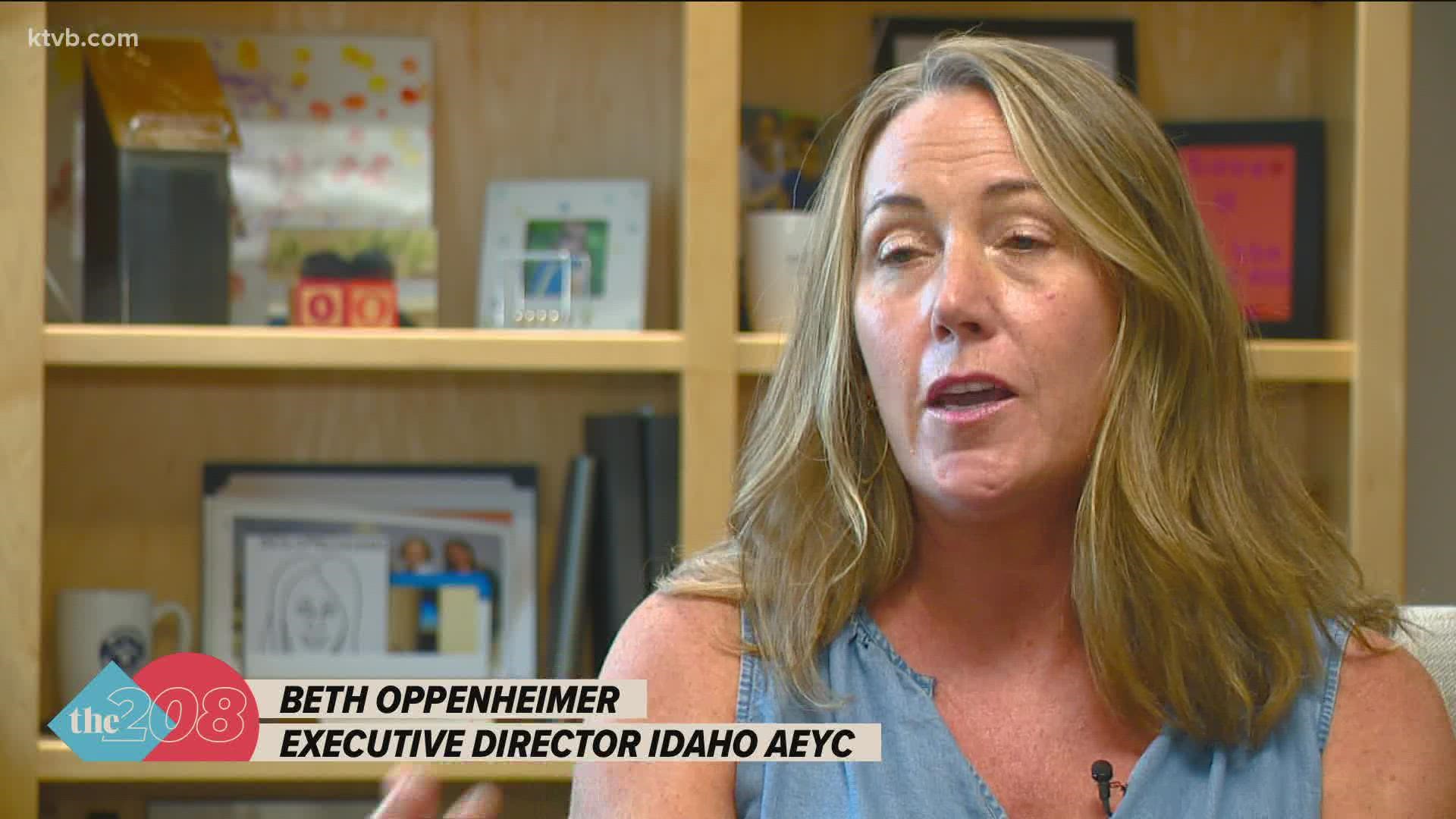BOISE, Idaho — A recent study conducted by the Idaho Association for the Education of Young Children found that 91 % of child care providers in the state of Idaho are experiencing staffing shortages. The childcare worker shortage comes at a time when many parents are heading back to work or establishing a work-from-home routine.
“How can you work from home even when you have a young child, they need nurturing and they need things but then you are also faced with that parental guilt of leaving your child somewhere and there is so much fear and uncertainty in our community right now?” said Melissa Buck, the owner of Montessori Vista School in Boise.
Buck said there is an overwhelming number of parents seeking child care, so much so that the wait to get in at Vista Montessori is a yearlong, but it’s not because her facility is full. She explained that many employees left because of the uncertainty of the pandemic, and now there is a great shortage of workers.
The problem, she said, is that the child care industry cannot offer a competitive hourly wage.
“Our payroll is probably 75% of our budget and even with that being said, we can’t charge enough to pay enough to compete with jobs like Amazon and T-Mobile, starting at $20 an hour,” Buck said.
Beth Oppenheimer, an executive director of the Idaho Association for the Education of Younger Children, told KTVB that hourly rates for employees working in child care range from $9 to $11, adding that infant care is up to $1,000 a month.
“In a convenient store, if you're not making a profit, you raise the price of a candy bar and people will pay that, in child care, if you raise the cost of the service, it goes on the backs of families so you've got this catch 22 where child care programs can’t afford to make any less, but families can’t afford to pay anymore and so what gives,” Oppenheimer said.
She added that many in the industry worry that there is no light at the end of the tunnel.
Due to the lack of staff, daycares are trying to up their hourly wage to compete with other industries. Not all parents can afford the higher costs, which creates a ripple effect.
“It impacts our economy, it impacts our communities, it impacts the mom and dad’s ability to go to work it impacts a child's development,” Oppenheimer said.
While there are some federal funds that support low-income families to pay for child care, Oppenheimer said not many families in Idaho qualify for it because they make over $30,000.
The lack of access to affordable child care and care, in general, is causing parents re-entering the workforce to turn down jobs in order to be able to look over their kids.
“Historically, the business community or business leaders have looked at childcare and have said, that's a family issue, we are not going to talk about that but what they are understanding and realizing is their employees they can’t come to work and they can’t hire and retain a qualified workforce because the people that they want to hire, can’t find child care,” Oppenheimer said.
She added that the businesses community is starting to think about childcare differently compared to pre-pandemic times.
“We are getting light on the problem that was already there, this isn’t a new problem, it’s just been exacerbated by the pandemic so hopefully, this will make some change for our industry and people will see that this is a problem,” Buck said.
Join 'The 208' conversation:
- Text us at (208) 321-5614
- E-mail us at the208@ktvb.com
- Join our The 208 Facebook group: https://www.facebook.com/groups/the208KTVB/
- Follow us on Twitter: @the208KTVB or tweet #the208 and #SoIdaho
- Follow us on Instagram: @the208KTVB
- Bookmark our landing page: /the-208
- And we also turn each episode into a podcast on Podbean
- Still reading this list? We're on YouTube, too:

